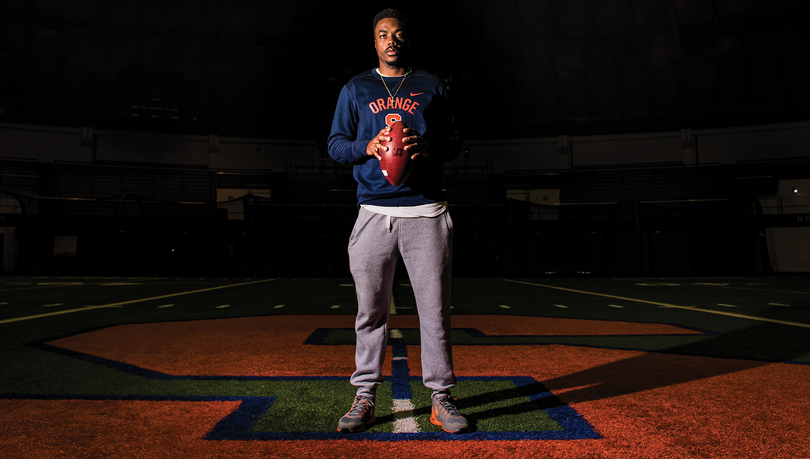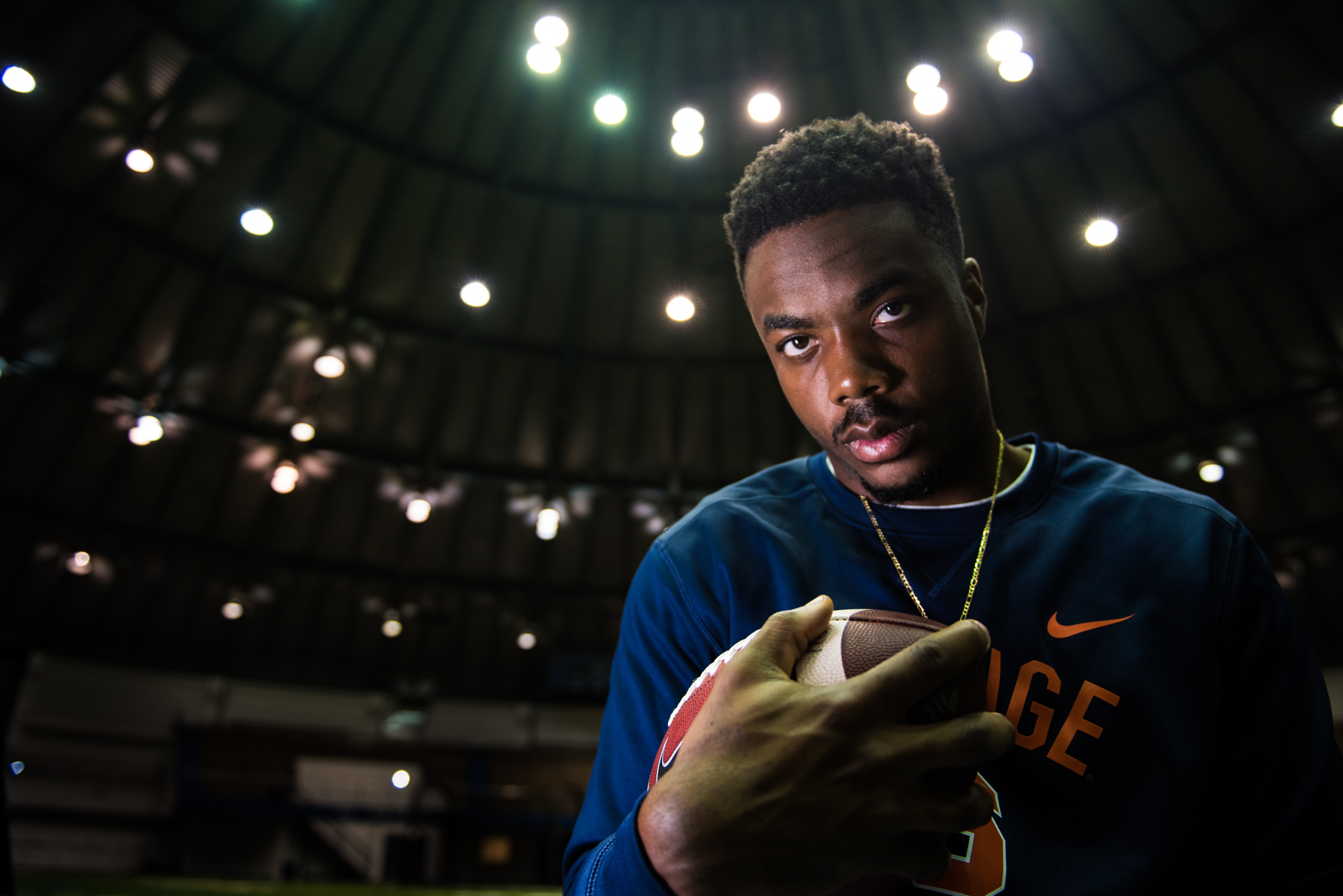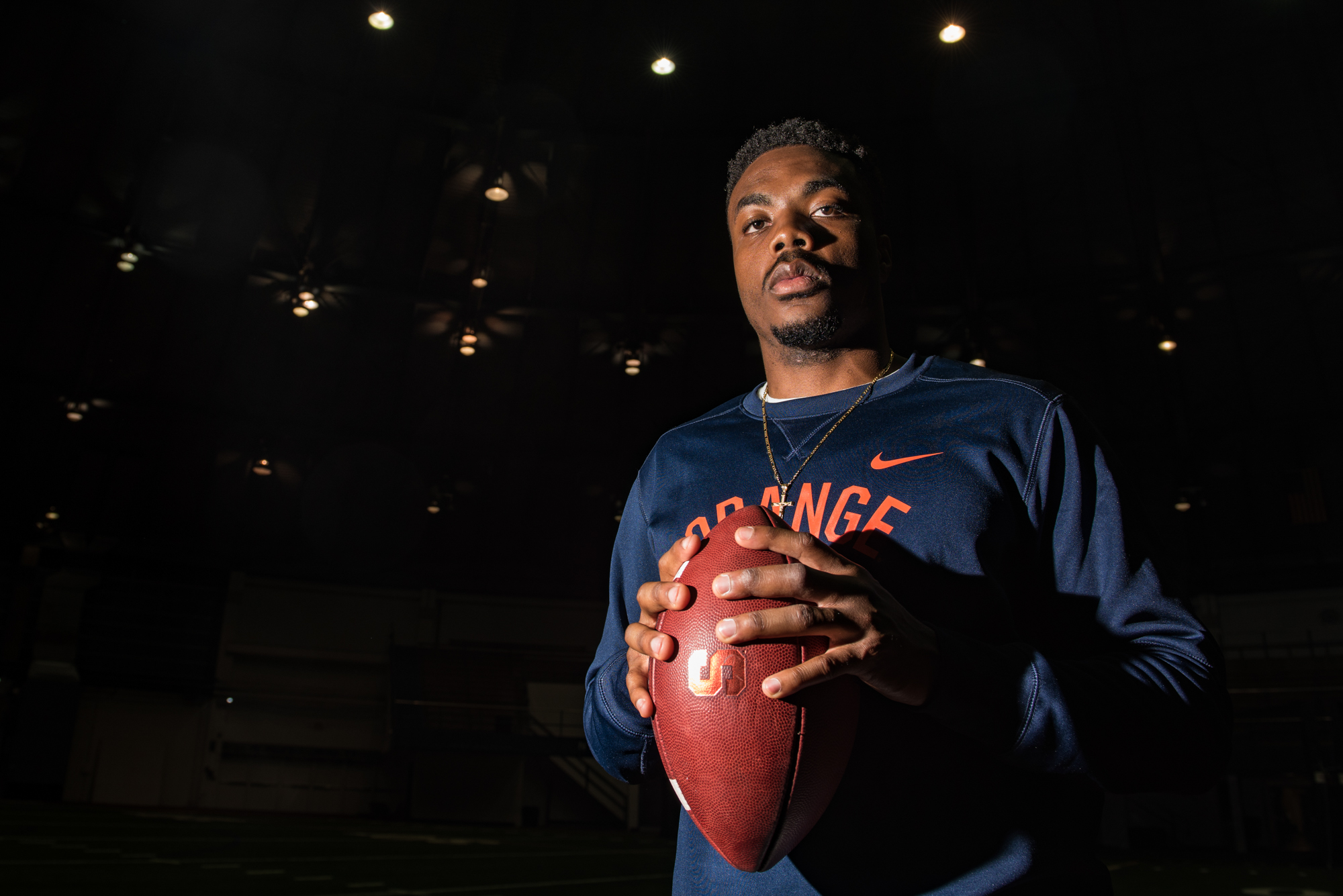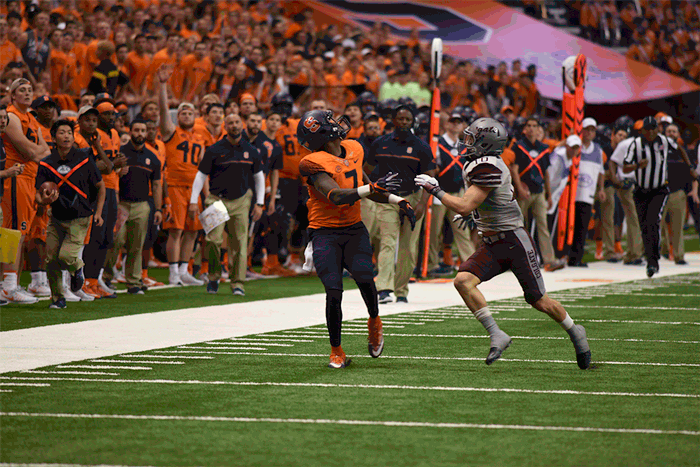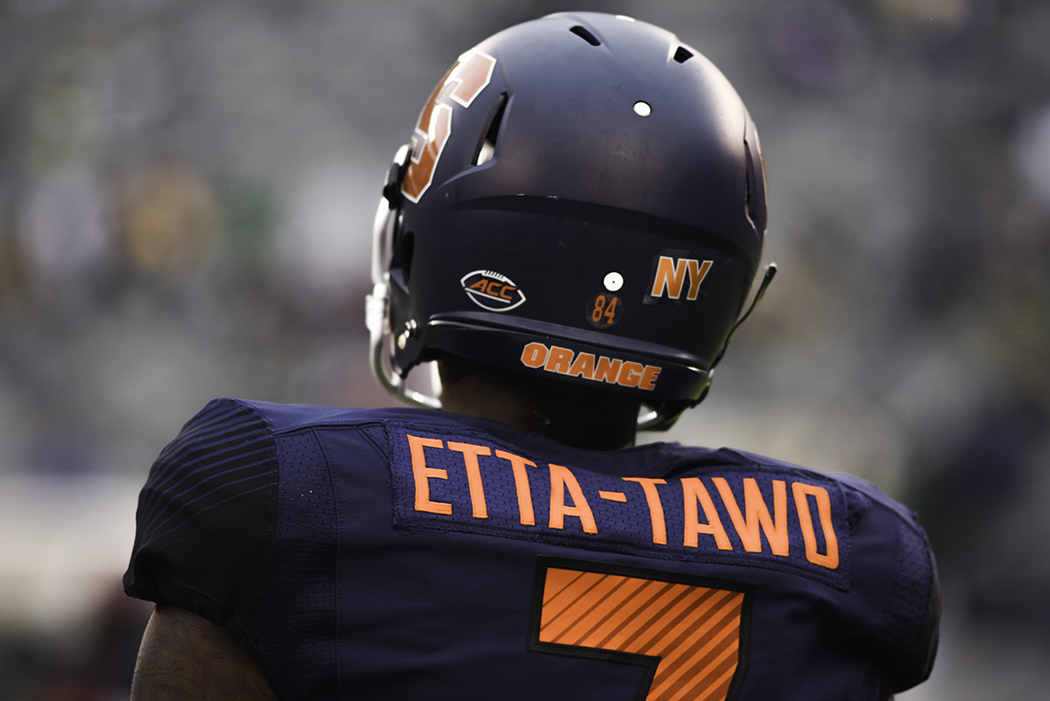A
mba admitted he was slightly immature as a younger player at McEachern (Georgia) High School. His oldest brother, Etta, knew his brother didn’t take his grades as seriously as he should. One day, that spilled over to football.
Amba was late to practice.
Ken Hockman, Amba’s position coach, happened to be on the phone with Etta and slid the detail into their conversation.
“He’ll never be late to practice again,” Hockman recalls Etta saying.
Etta had been Amba’s father figure since their father, Ekure Tawo, left for Nigeria. Amba and his brother Egim say their father left in 2004. Four brothers constitute the Etta-Tawo siblings: Etta (the oldest), Egim (second oldest), Amba and Ekure (the youngest). After their father left, Etta guided the brothers alongside their mother, Stella.
“When he decided to go back, I took it as my opportunity to step up and be the older figure to my younger brothers,” Etta said.
The family had come from Muscat, Oman in 1999 via a Visa lottery. The brothers played soccer and lived in a 10-mile-wide private community with other expatriates, including Americans, Brits and people of other various nationalities. Every morning, the boys would take a 30 to 40 minute bus ride to a private school. There was enough space in the community for the brothers to ride bikes and roam. But before they left Muscat, an uncle told the boys they’d soon forget about soccer.
“Guys, I’m telling you now,” Etta recalled the uncle telling them, “when you guys get over there, you guys are going to start playing football.”
When they arrived in the United States, the family settled in Atlanta. The 1998-99 Atlanta Falcons made the Super Bowl. The brothers became fans of Jamal Anderson and the “Dirty Bird” dance he did after touchdowns.
The Falcons’ success drew the oldest Etta-Tawo brother in. He won a championship in his first season playing football as a seventh grader. Amba and Egim followed their brother, each scoring touchdowns in their first recreation league games. Etta watched their careers unfold as a volunteer coach in high school. Together, the brothers were naturals. Etta eventually committed to play at Clemson.
During a Monday practice in Etta’s redshirt freshman season, he felt short of breath in a helmets-only walkthrough. Etta thought the problem was a cold, but after two more days of practice, it didn’t improve. He drove with trainers to the hospital and doctors ran tests, which revealed he had an enlarged heart. Etta said he was tested for a year and a half to see whether he could return or if his condition had improved, but he never got back to the field. One of Etta’s former college teammates, Gaines Adams, collapsed and died of an enlarged heart in 2010 when he played for the Chicago Bears.
“Amba and Egim sent me a long text basically saying … ‘You’re the reason I started playing football. I can’t believe this is happening, your dream is coming to an end,’” Etta said. “‘I just want you to know with everything I’ve got left in my body, I’m going to play for you, I’m going to play for Ekure, I’m going to play for mom.’
“I started tearing up a little bit.”
While Etta was disappointed, he realized the end of his career would help spur Egim’s and Amba’s. The latter was so small when he started playing that he hated being tackled, so much so that Hockman said the team had to manage his temper. Opponents and teammates knew it got under the young receiver’s skin. The coach estimated Amba stood 6-feet-1 but just 135 pounds in his freshman season. As a gangly player, he learned to outrun opponents to avoid tackles.
Hockman had a competition for his wide receiver crew each week. Whoever had the best set of practices was allowed to wear a pair of gold Cutters gloves in McEachern’s next contest. Often, Amba and Hockman would stay late after practice and Amba would catch 80 balls from a JUGS machine. The wide receiver coach said Amba was on McEachern’s second team for a few weeks, but they quickly realized he should be moved up.
Hockman saw Amba’s talent, and all he needed to do was refine and refocus it. When Amba was late to practice, his brother reminded him of what he was playing for. The talk set Amba on the right path.
“When you show up to practice late, you’re telling your coaches that you don’t care about their time, that your time is better than their time and you’re better than the team,” Etta said, recalling what he told Amba. “… When you start doing stuff like that, coaches are gonna fall off, fall away from you. You may have all the talent in the world, but if you’re a knucklehead and don’t do what they tell you, then their patience is going to wear thin.”
He was never late to practice again.


